I wrote this article in Japanese and translated it into English using ChatGPT. I also used ChatGPT to create the English article title. I did my best to correct any translation mistakes, but please let me know if you find any errors. By the way, I did not use ChatGPT when writing the Japanese article. The entire article was written from scratch by me, Saikawa Goto.
Introduction

Movies and books covered in this article
Three takeaways from this article
- Why did only “sapiens” survive among various human species?
- What is the reason for developing “anxiety about the future” due to “agriculture”?
- The essence of the “scientific revolution” is a change in perspective to “We are ignorant”.
Self-introduction article


Published Kindle books(Free on Kindle Unlimited)
“The genius Einstein: An easy-to-understand book about interesting science advances that is not too simple based on his life and discoveries: Theory of Relativity, Cosmology and Quantum Theory”
“Why is “lack of imagination” called “communication skills”?: Japanese-specific”negative” communication”
The quotes in the article were translated using ChatGPT from Japanese books, and are not direct quotes from the foreign language original books, even if they exist.
It’s No Wonder that It has Become a Global Bestseller. “Sapiens” is a “Treasure Trove of Knowledge” that Takes an Overarching View of Human History
This book is a well-known bestseller, and there may be no need for me to introduce it now. However, I think I can write a lengthy and dense article that can serve as a guide to this work. In this article, I intend to outline the major themes of the book.

The Central Mystery of This Book is “Why did Only ‘Sapiens’ Become Like Us?”
If you’re not very familiar with the history of human origins, you might not understand the meaning of the question, “Why did only ‘sapiens’ become like us?” which is at the heart of this book. First, let’s explain that.


Humans belong to a “genus” called “Homo.” “Genus” is a way of classifying living things that falls under “family.” In the case of humans, it is “family: Hominidae, genus: Homo.”
Usually, there are various types within “family:X, genus:X.” For example, in “Canidae Canis,” there are various types with different appearances and abilities, such as “Akitainu, Siberian Husky, Dachshund,” and so on.

So what about “family: Hominidae, genus: Homo”? The main mystery is that currently, only we, “Homo sapiens” (referred to as “sapiens” in this book), exist within this “family: Hominidae, genus: Homo”.
In the past, there were various types within “family: Hominidae, genus: Homo”. You may have learned about them in a history class, such as Neanderthal Man and Australopithecus. There were times when sapiens coexisted with other species of “genus Homo”. Just as Akitainu passes by a Pomeranian, our ancestors, sapiens, could have seen Australopithecus while walking.

However, that possibility no longer exists. We sapiens are the only ones in “family: Hominidae, genus: Homo” now. This is like a situation where all the dogs in the world are Golden Retrievers.
When explained in this way, it may seem like an unusual situation. In fact, that is the strange situation in “family: Hominidae, genus: Homo.”
This book delves into the history of sapiens, which focuses on the question of why only sapiens survived in “family: Hominidae, genus: Homo,” and why sapiens developed advanced civilizations and became like us.
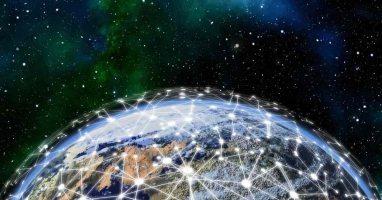
The Greatness of “Language” that Sapiens Acquired and the “Cognitive Revolution”
From here on, we will refer to “family: Hominidae, genus: Homo” as “humans.”
Humans have developed larger brains compared to other animals, and at some point, they also became able to handle fire. These are fairly unique features that distinguish humans from other species. However, the author writes as follow:
Although benefiting from the use of fire, humans 150,000 years ago were still insignificant creatures.

This means that humans were not a particularly special species on the entire Earth.
After that, humans acquired “language.” There is a debate about whether other human species besides sapiens had the kind of “language” that we imagine, but let’s assume that humans as a whole acquired some form of language.
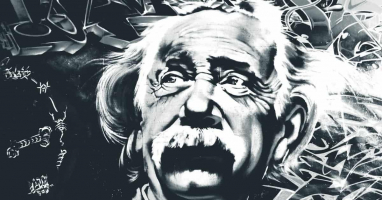
Even if we think of it that way, this won’t hinder future discussions. That’s because some kinds of language are also used by organisms other than humans. Various creatures are known to communicate through sound or some other kind of noise, and these can be considered a type of “language.”

Now, an important question is: “What’s the difference between the ‘language’ that non-sapiens humans and other animals have acquired, and the ‘language’ that humans have acquired?” The author points out that the greatness of sapiens lies in their “ability to talk about imaginary things.”
However, as for the truly unparalleled characteristic of our language, it is not the ability to convey information about humans or lions. Rather, it is the ability to convey information about things that do not exist at all. As far as we know, only sapiens have the ability to talk about all kinds of things that have never been seen, touched, or smelled.

And thus, the “cognitive revolution,” the first major turning point for sapiens, was brought about by the ability to talk about imaginary things through language acquisition.
What the cognitive revolution gave rise to were “Myths.” In this book, “Myths” refer to “something imaginary that is shared by the majority.” When you hear the word “Myths,” you might associate it with something specific like “Greek Myths,” “Norse mythology,” or “Kojiki (Records of Ancient Matters),” but in this book, they appear as a broader concept.
Let me explain a little more.

For example, “Apples” will continue to exist on Earth even if sapiens disappear. However, what about “Japan as a country”? Certainly, the “island” itself will remain even if sapiens disappear. But the fact that “it is ‘Japan as a country'” will be lost when sapiens disappear. If you want to imagine something more concrete, how about “money”? Certainly, the “objects” such as “coins” and “bills” will remain. However, if sapiens disappear, there will be no living beings on Earth that find value in “money”.
In this book, these kinds of concepts that will be lost if sapiens disappear are called “Myths”.

For sapiens, the power of “Myths” was immense.
Thanks to the ability to create imaginary realities using language, large groups of strangers could effectively cooperate with each other.
In other words, they were able to generate a type of “collaboration” that other animals could not achieve. The existence of huge constructions such as pyramids may have been possible because many people shared the “Myth” of the absolute power of kings (although there is also a hypothesis that the construction of pyramids created jobs as a public works project).

However, what “Myths” brought about is not just that. The author writes about even more important points as follow.

Human cooperation on a large scale is based on myths, so the way people cooperate can be changed by changing those myths, in other words, by telling a different story. Under the right conditions, myths can quickly change reality. For example, in 1789, the French people almost overnight stopped believing in the myths of the theory of the divine right of kings and started believing in the myths of the sovereignty of the people. Since the cognitive revolution, Homo sapiens has been able to quickly change their behavior in response to changing needs.
The cognitive revolution created a mechanism of “using myths to make people cooperate,” but this method also has had the positive effect of being able to quickly change the way people cooperate by changing myths. A recent example that would be easy to imagine is wearing masks in other countries. Before the Corona pandemic, there was a time like when “if Japanese people wearing a mask entered a store abroad, they would be thought of as robbers,” but the myths changed due to the global pandemic, and Westerners were also supposed to start wearing masks.

One could say that the appeals for SDGs and climate change crises are also aimed at changing “Myths” to prompt behavioral change in people. We can say that we also experience the impact of such “cognitive revolution” in our daily lives.
Thus, sapiens became capable of creating large-scale cooperation at a level that is impossible for other living organisms.

The “Agricultural Revolution” Brought “Anxiety” to Sapiens
The author cites “agriculture” as another factor that made only sapiens stand out among humans. This is called the “agricultural revolution,” the second revolution.
The historical fact that sapiens embarked on “farming” seems to have sparked the following debate:
The agricultural revolution is one of the most controversial events in history. There are ardent supporters who claim that this revolution set humanity on the path to prosperity and progress. On the other hand, there are also those who insist that it led to hell.

In my vague memory, I think I was taught in my high school history class that “humans obtained a stable settled life through agriculture.” There are indeed people who support that claim. However, there are also people who describe it as “going to hell.” It may seem like an extreme claim. However, the following idea seems to be contained therein.
It was not us who domesticated wheat, but wheat that domesticated us.

According to the author, judging by the results, there should be no benefit from transitioning from hunting and gathering to agriculture. This is because hunting and gathering allow better for a variety of nutrients to be taken in. In addition, being forced to settle down near wheat deprives one of freedom, and it also leads to an increase in diseases such as hernia and arthritis due to agricultural work.

When I hear that argument, it makes me wonder if anyone would have thought about transitioning to agriculture while living a life where hunting and gathering was the norm. If I were a hunter-gatherer, I would have felt, “Why not just go pick animals and fruits when I feel like it and live in a place I like? I don’t want to live a life where I have to sow seeds and harvest crops and can never stay away from wheat.”
Regarding one of the reasons behind realizing the transition to agriculture, the author points out that the change was very gradual. When looking at one person’s life, the change was probably minimal compared to one generation ago. It was probably more like a feeling of “Oh, that family is starting to do agriculture too.” instead of a sudden shift to agriculture happening all at once.

Little by little, people began to shift to agriculture because, from a short-term perspective, it seemed more advantageous than hunting and gathering, according to the author. This is likely because there were years when fruit could not be harvested due to disasters, and the population became too dense in certain areas, reducing the share of resources per person. It means that some people began to give up hunting and gathering, which had long-term advantages but also had disadvantages in the short term.
Sapiens gradually transitioned from hunting and gathering to agriculture in this way, and the author perceives it as follows:
The agricultural revolution was the biggest fraud in history.
One reason for this is that “agriculture created ‘anxiety about the future'”.
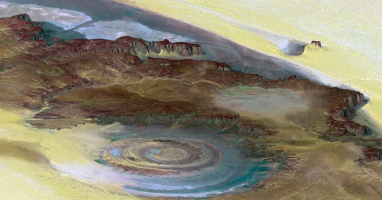
Hunter-gatherer life is like living “day-to-day” with the assumption that “we will surely be able to eat meat and fruits just like today in the future”. Therefore, there is no reason to think about the future timeline.
On the other hand, agricultural life will bring about more occasions to worry about the future. It requires people’s labor for each season’s designated work, and there is a fear of not being able to harvest due to disasters and such. As a result, the “anxiety about the future” was born with “agriculture”.
However, there are actually inherent ways to deal with “anxiety about the future” in agricultural life. They can increase productivity by working hard, and they can also prepare for unforeseen events by saving food through restraint.
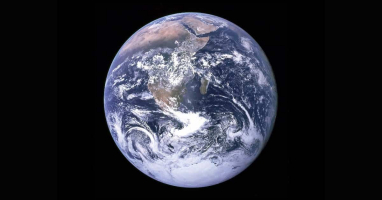
It is not a matter of, “Well, then there’s no problem”. Because the problem is that these acts of “working hard” and “stockpiling food” actually ended up causing suffering for the agricultural people.
This is because elites are able to seize the “surplus production” that is created by these activities. In a hunter-gatherer society, there is no such thing as “surplus production,” so there are no entities that can seize it. However, in agricultural life, “anxiety about the future” is inevitably created, and since “surplus production” can be carried out to cope with it, there have been beings who will try to take away that “surplus production.

Due to conflicts and taxes such as “annual tribute”, the “surplus production” is taken away from the farmers. Those who gain wealth by confiscating from the farmers make them work even more and take more away from them, causing them to be unable to escape from their exhausting lives. This is exactly what “domestication of wheat” is.
However, this “surplus production” was very important for human history.
Through this, the surplus food that was confiscated became the driving force behind politics, war, art, and philosophy.
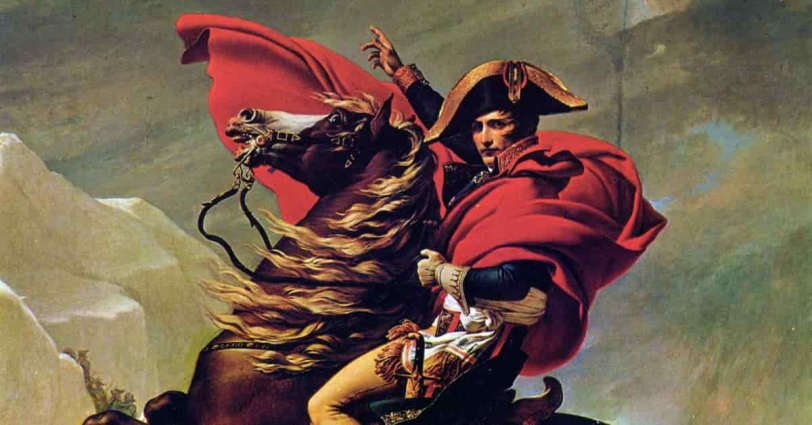
Various essential things for building advanced civilizations, were based on the “surplus production” created by farmers. When considering this, it can be said that if humans continued to live a hunting and gathering lifestyle without “surplus production”, they would not have been able to create a society like the present one.

Agriculture was the “biggest fraud in history” and, as a result, the lives of farmers became difficult. However, thanks to agriculture, a small group of people were able to accumulate immense wealth and it became the catalyst for the creation of advanced societies.
Furthermore, the agricultural revolution also gave birth to the “writing system”.
In agricultural life, a vast amount of numerical data had to be managed. There were various data points required for farming such as temperature and water quantity, and it was necessary to record the amount of harvested crops.
For these records, a system called the “writing system” was developed, with Sumerians leading the way. They even devised a system for storing the recorded documents, achieving highly efficient document management.

This “writing system” was also essential for sapiens to achieve large-scale cooperation.
Through the sharing of myths during the cognitive revolution and the plundering of wealth and the development of the writing system during the agricultural revolution, sapiens were able to achieve collaboration that other organisms could not imitate and create large networks.
However, this trend also led to the creation of hierarchies and discrimination.

“Sharing Myths” results in the creation of “imaginary order”, which basically means distinctions like “white and black”, “male and female”. Also, “wealth seizing” naturally creates a distinction between “rich and poor”. In this book, the author reflects on how sapiens has created discrimination based on these distinctions. It can be said that this is a very interesting flow that captures the overall history of humankind.
Afterwards, the discussion unfolds that “from a macroscopic perspective, sapiens is moving towards unification.” The three elements of “money,” “empire,” and “religion” are taken up, and how they have consolidated the social structure, values, and culture towards the same direction is discussed, but let’s omit that part in this article.

The “Scientific Revolution” is the Third Revolution
Now, I want to change the term “sapiens” to “humankind” from here on out.
Moving on to the “scientific revolution,” we are familiar with how “science” has changed the world in various ways, so there is no doubt that it is called a “revolution.” However, at the time, it was not perceived as such.
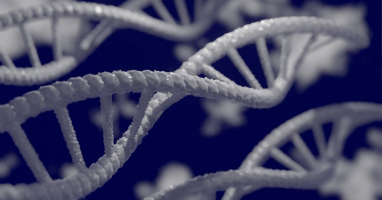
There is a reason why this is called a revolution. Until around 1500 AD, humankind all over the world did not believe they had the ability to acquire new power in the fields of medicine, military, and economy. Although governments and wealthy sponsors allocated funds for education and learning, their purpose was generally not to acquire new abilities, but to maintain existing ones. Typical rulers before modern times gave money to priests, philosophers, and poets to justify their rule, maintain social order, and did not expect them to discover new medicines, invent new weapons, or promote economic growth.
“Medicine,” “military,” and “economy” were not considered as fields that “create new things,” which may seem surprising from today’s perspective.

Furthermore, people at that time generally held such beliefs.

Before the scientific revolution, most of humankind’s culture did not believe in progress. People thought that the golden age was in the past, and even if the world was not declining, it was stagnant. If people strictly adhered to the wisdom accumulated over the years, they might be able to regain the good old days, and human ingenuity could improve various aspects of daily life. However, it was believed that it was impossible to use humankind’s practical knowledge to overcome fundamental problems in this world. If even Muḥammad, Jesus, Buddha, and Confucius, who knew everything they needed to know, could not eliminate famine, plague, poverty, and war from this world, how could we do such a thing?
Before the scientific revolution, the power of religion was strong, and there were founders such as Jesus Christ and Buddha, who were revered as “great figures.” Therefore, it can be said that it is a natural sense to think that “the past was greater.”

In other words, before the “scientific revolution,” it was natural to think “we already understand the world, but since the problems don’t go away even though we understand everything, they will never disappear.”
Understanding this point would make it easier to understand why the “scientific revolution” was a “revolution.” In other words, just that they standed on the starting line of “we don’t know anything yet” is the real “revolution.”

This difference is also related to the differences in European imperialism.
In the history of imperialism prior to Europe, conquerors tended to think that they already understood the world. Conquest was simply a matter of using their worldview and spreading it. For example, the Arabs did not conquer Egypt, Spain, or India to discover anything unknown to them. The Romans, Mongols, and Aztecs greedily conquered new lands for wealth and power, not knowledge. In contrast, European imperialists sought to gain new knowledge along with new territories and set sail on the sea to distant lands.

They used to travel the world to “spread the ideas of us who know everything,” but at some point, it became their goal to “acquire new knowledge.” This change can certainly be said to be very significant.
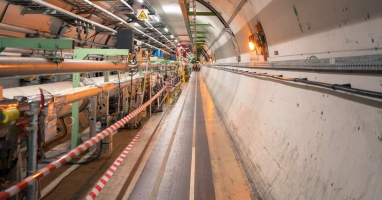
By understanding this difference, you can also answer the following question:
How did the people of Europe, who lived in the cold end of the Eurasian continent, break out of this corner far from the center of the world and conquer the whole world?
What’s important is whether they started from the starting line of “ignorance” or not. The combination of military, industry, and science developed not in India, but in Europe. This explains why France, Germany, and the United States quickly caught up when Britain made a leap, but China fell behind, all for the same reason.

In other words, humankind achieved the “scientific revolution” by throwing off the “religious constraints” that they understood everything and standing on the premise that they knew nothing, accumulating various knowledge to this day.
In this book, “capitalism” and “industrial revolution” are mentioned as essential elements for the “scientific revolution”. And it was through reading this book that I was able to understand the essential part of “capitalism” for the first time.

I’ve read about “capitalism” in some economics books before, but it always felt strange to me. That’s because they usually say something like “wealth keeps increasing under capitalism,” but they never explained why.
In this book, it’s written that at the heart of capitalism lies the expectation that “scientists will make some amazing discovery.” In other words, it means that the illusion that “scientists will create something new, even though we don’t know what it is,” is what makes capitalism work.


On the other hand, it can also be said that “capitalism will cease to exist if science stops creating something new”. In that sense, it can be said that “science” and “capitalism” are inseparable.
In addition, this book has an interesting story about the impact of “capitalism”. Surprisingly, it created the concept of “individuals”.
Until then, humankind had dealt with various matters related to their lives through “family” and “community”. In other words, it means that social life that did not emphasize the unit of “individual” was being conducted. However, by giving power to the “market” in capitalism, anyone can enjoy various services through the “market”. Against such background, the state, which wanted to weaken the power of “family” and “community”, began to disseminate the idea that “it is better to live more freely without depending on family or community”.
It was also interesting to hear that the concept of “individual” was born in such a flow.

Conclusion
In this article, I only briefly touch on the overall flow, and the book is filled with a wide variety of other topics.
I read books to some extent and also read a lot of non-fiction, but even I felt a little difficulty, so it might be a difficult book to read for people who are not used to reading books.

However, this book is a magnificent work that raises the grand theme of “the history of sapiens” and skillfully sublimates it, and is filled with various insights not limited to history.
It is a book worth challenging and full of intellectual excitement.

Published Kindle books(Free on Kindle Unlimited)
“The genius Einstein: An easy-to-understand book about interesting science advances that is not too simple based on his life and discoveries: Theory of Relativity, Cosmology and Quantum Theory”
“Why is “lack of imagination” called “communication skills”?: Japanese-specific”negative” communication”







コメント